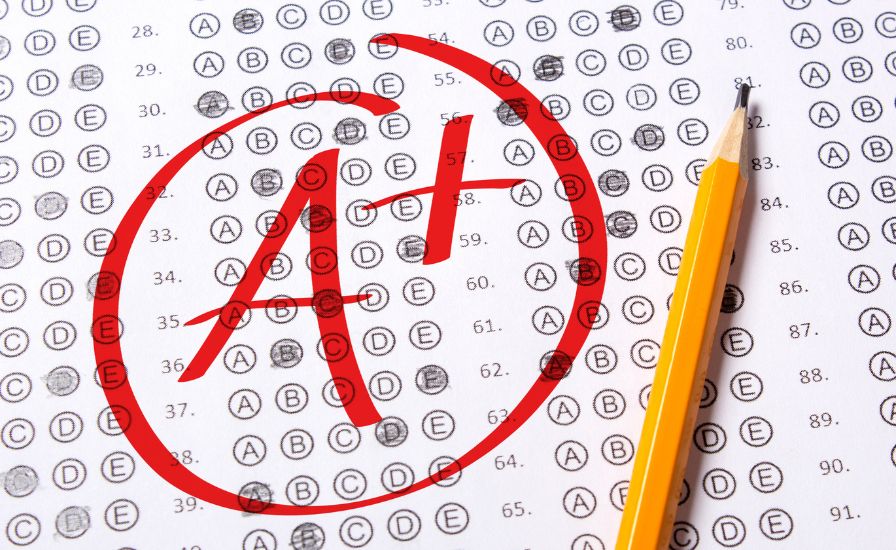What is a Good 11 Plus Scoring?
The 11 Plus exam is a crucial milestone for students aspiring to secure a spot in selective grammar schools. As parents and students gear up for this challenging assessment, the importance of mock exams becomes undeniable. These simulated tests not only help in familiarising students with the exam format but also serve as a key tool in deciphering the code to achieving a good 11 Plus scoring.
Understanding the 11 Plus Exam

Before exploring into the significance of mock exams, let’s briefly understand what the 11 Plus exam entails. This standardised test is administered in the United Kingdom to assess a student’s aptitude for grammar school education. The exam typically includes sections on verbal reasoning, non-verbal reasoning, mathematics, and English. The competition is fierce, as only a limited number of spots are available in grammar schools, adding pressure to both parents and students.
Importance of Mock Exams
Mock exams, also known as practise tests, are designed to replicate the actual 11 Plus exam conditions. They offer students a chance to experience the format, time constraints, and level of difficulty they can expect on the day of the actual exam. Here are several reasons why mock exams are instrumental in preparing for the 11 Plus.
Familiarisation with Exam Structure

Mock exams provide students with a firsthand experience of the 11 Plus format. Understanding the structure and types of questions they will encounter helps alleviate anxiety and builds confidence.
Time Management Skills
The 11 Plus exam is time-bound, and effective time management is crucial. Mock exams help students practise pacing themselves, ensuring they can complete each section within the allocated time.
Identifying Strengths and Weaknesses
By taking multiple mock exams, students can identify their strengths and weaknesses in different subjects or question types. This self-awareness allows for targeted and efficient study strategies.
Reducing Exam Anxiety
The pressure of a high-stakes exam can lead to anxiety. Regularly taking mock exams helps students become accustomed to exam conditions, reducing nervousness and enhancing their ability to perform under pressure.
Building Endurance
The 11 Plus is a lengthy exam, and maintaining focus throughout is challenging. Mock exams simulate the actual testing environment, helping students build mental endurance for the duration of the assessment.
Feedback and Improvement
Mock exams provide an opportunity for detailed feedback. Reviewing the answers and understanding where mistakes were made allows for targeted improvement in weak areas.
Setting Realistic Goals
Mock exams help set realistic performance goals. As students see their progress over multiple practise tests, they can set achievable targets for the actual exam day.
Cracking the Code: What is a Good 11 Plus Score?

Now that we understand the role of mock exams in preparing for the 11 Plus, the question arises: What is considered a good 11 Plus score? It’s important to note that the definition of a good score can vary based on the specific grammar schools a student is targeting. Each school may have different admission criteria, including a minimum required score or a ranking system.
However, a general guideline is that a good 11 Plus score is one that places a student above the average range for the schools they are applying to. In many cases, scoring in the top 20% can be considered a good performance. It’s crucial for parents and students to research the specific admission criteria of the target schools and understand the average scores of admitted students in previous years.
The Role of Mock Exam Scores

Mock exam scores play a pivotal role in predicting a student’s potential performance in the actual 11 Plus exam. While they are not a definitive measure, they serve as valuable indicators of preparedness. Here’s how mock exam scores can contribute to cracking the code for a good 11 Plus score:
Benchmarking Performance
Mock exam scores act as benchmarks. They provide a baseline for understanding where a student currently stands in terms of readiness for the 11 Plus. Consistent improvement in mock scores indicates effective preparation.
Adapting Study Plans
Based on mock exam performance, students can adapt their study plans. Focusing more on weaker areas and refining strategies for specific question types can significantly impact overall performance.
Setting Realistic Expectations
Mock exam scores help in setting realistic expectations. If a student consistently performs well in practise tests, they are likely to approach the actual exam day with greater confidence.
Identifying Trends
Analysing trends in mock exam scores allows students to identify recurring mistakes or patterns. This information can be used to tailor study approaches and address specific challenges.
Simulating Exam Day Conditions
Mock exams simulate the conditions of the actual 11 Plus exam, offering a glimpse into how a student might perform under stress. This simulation helps students familiarise themselves with the pressure and time constraints they will face.
Fine-Tuning Exam Strategies
Mock exams provide an opportunity to fine-tune exam strategies. Whether it’s choosing the order of sections, managing time effectively, or refining problem-solving techniques, these practise tests allow for strategic adjustments.
Boosting Confidence
Success in mock exams contributes to a student’s confidence. Feeling well-prepared and having evidence of one’s capabilities can positively impact performance on the actual exam day.
The Art of Effective Preparation

While mock exams serve as a compass in navigating the 11 Plus landscape, effective preparation strategies are equally crucial. Establishing a study routine, creating a personalised study plan, and leveraging resources like textbooks and online materials can significantly enhance a student’s readiness. Encouraging a balance between focused study sessions and breaks is key to preventing burnout and maintaining sustained concentration.
Tailoring Strategies for Different Sections
The 11 Plus exam encompasses various sections, each requiring specific skills. Verbal reasoning, non-verbal reasoning, mathematics, and English demand diverse approaches. Analysing mock exam performance section-wise aids in tailoring strategies. Whether it’s developing vocabulary for verbal reasoning or practising spatial reasoning for non-verbal reasoning, targeted efforts in weaker areas can lead to substantial improvement.
Navigating Exam Day with Confidence
As the exam day approaches, instilling a sense of confidence becomes paramount. Revisiting successful mock exam performances, practising mindfulness techniques to manage stress, and ensuring a good night’s sleep contribute to a positive mindset on the day of the exam. Confidence, coupled with thorough preparation, creates a powerful formula for success.
Conclusion
Cracking the code to achieving a good 11 Plus score involves a combination of effective preparation, strategic planning, and the invaluable tool of mock exams. These practise tests are not only about mimicking exam conditions but also about empowering students to understand their strengths and weaknesses, adapt their study plans accordingly, and approach the actual exam day with confidence.
Parents, educators, and students alike should view mock exams as an integral part of the 11 Plus preparation journey. Through diligent practise, self-reflection, and continuous improvement, students can enhance their chances of cracking the code to a successful 11 Plus experience and securing a spot in a selective grammar school.








Leave a Reply